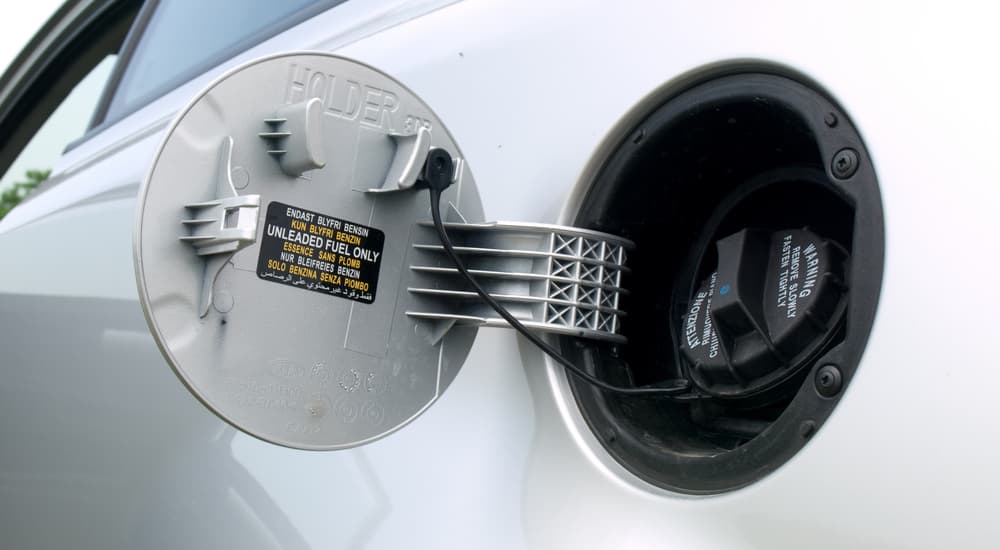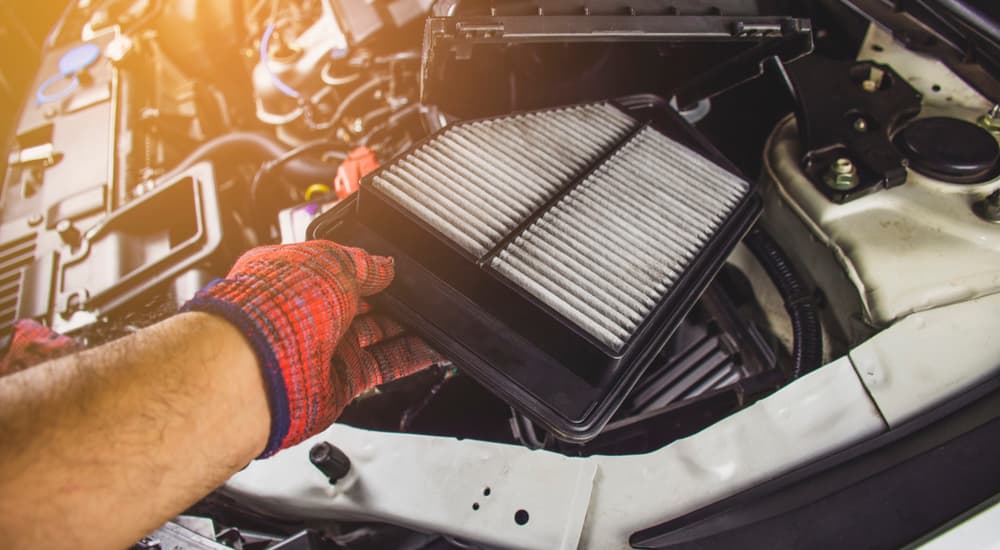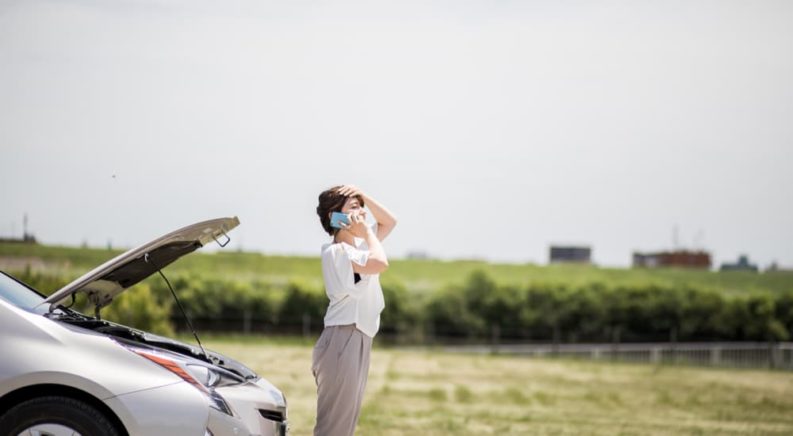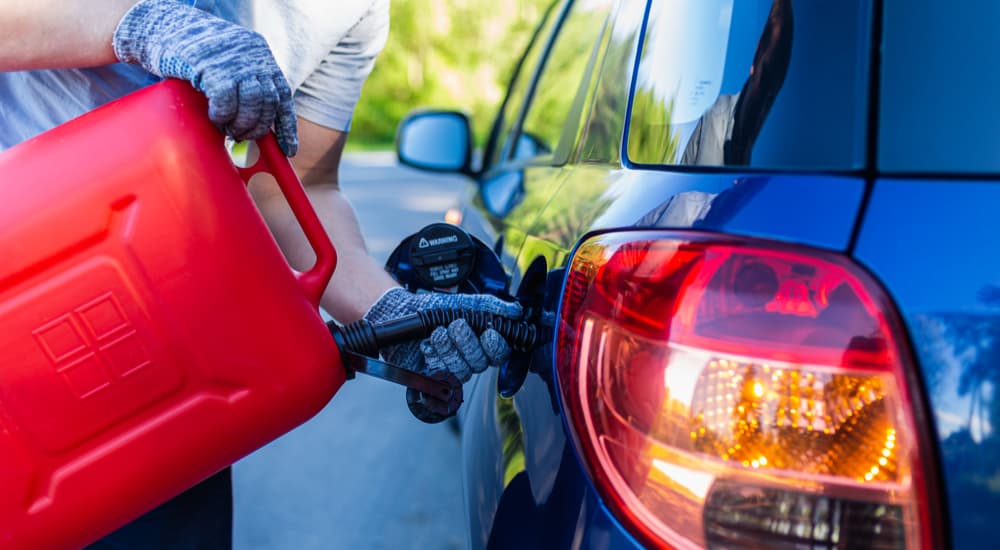Short answer: your car’s stalling because the engine isn’t receiving what it needs to function, or you’re trying to do something that will damage it. Longer answer: keep reading. When your car stalls, your engine essentially stops working for one of several different reasons, most of them mechanical in nature. Any engine can stall, though, for most of us, it’s primarily a concern with our cars.
The exact reason why your car, in particular, is stalling really depends on your situation and a number of different factors. In other words, I can’t tell you why, exactly, your car specifically keeps stalling, but I can help you understand what’s going on, and you should be able to pinpoint your exact reason with relative ease. Some of the most common reasons for cars stalling are very simple and easily remedied. Others are a bit more complicated but still relatively simple to diagnose and then figure out the best fix for.
What Is an Engine Stall?
Before we jump into the “why,” let’s briefly go over the “what.” A stall refers to when your engine, or any engine, suddenly stops working. Picture the engine in your vehicle bravely providing power to the rest of your car, the pistons slamming up and down as tiny explosions rumble throughout the cylinders. Something happens, and all of a sudden, that stops. The explosions stop firing, the pistons stop moving, the belts all halt, and the rest of your vehicle takes it as a sign to follow suit. This might occur when you’re trying to start your vehicle, and it simply won’t start, or while you’re cruising down the highway at 60 mph, which is not ideal.
There are different reasons your engine might stall, though they all generally have to do with the engine not getting enough fuel, air, or something else that it needs to operate. A mechanical failure of some kind can also trigger a stall, particularly one that would otherwise cause the engine to be damaged. Failing electrical systems can also either directly cause a stall or trigger one due to a misreading of some other system in your vehicle.
Common Reasons Car Engines Stall (and What to Do)
Empty Fuel Tank
One common reason for an engine stall, and arguably the easiest one to fix, is a lack of fuel going to it. In other words: you’re out of gas. If you notice your fuel warning light come on, and you proceed to ignore it for a while, then your car stalls – you can pretty easily figure out the action/reaction for this situation. Fill your gas tank, and it should be fine.
Clutch Problems
If you have a manual transmission, then one of the most common reasons for frequent stalling is improper use of the clutch. The clutch in a vehicle connects the driveshaft from your engine to the shafts and axles connected to your wheels. When you’re at a stop, your engine keeps going and spinning, but you don’t want your wheels to spin, obviously. Pressing your clutch pedal disconnects your engine from the wheels, and releasing it reconnects them, so you start to move.
With a manual transmission, you need to release the clutch while also applying the gas at the same time in order for your engine to properly reconnect and start moving forward. Failure to time this properly or releasing the clutch too quickly and suddenly can cause your engine to stall. You can also stall if you try to switch gears without high enough RPMs to allow for it. If that happens, simply shift into neutral, press the clutch, restart the engine, and then release the clutch as you apply the gas just like you were starting from a stop. Otherwise, if you’re stalling while starting up, you need to practice more and get the timing down with the clutch.
Improper Fuel Mixture
Your car’s engine needs the right amount of fuel and air mixed together to run properly – when that mixture is off, it can cause your car to stall. This is one that can be harder to figure out and takes more work to fix. If you don’t have the experience to mess with your fuel system yourself and figure out the gas/air mix, then have a professional help you with it.

Bad Fuel Pump
The fuel pump is needed to pull gas from the fuel tank and get it to the engine – if the pump stops working, then so will your engine. This can also be tricky to diagnose, though isolating the fuel pump is generally easier than some other problems. It’s not the cheapest thing to fix, but replacing a bad fuel pump can fix persistent stalling issues.
Battery Issues
Although the battery in your car is primarily used to start the engine, it’s still important even after the fact. If your battery is dying, then you might have problems with stalling since your spark plugs may not be firing properly. A quick test with a multimeter will let you know if your battery is suitably charging or if you need to replace it.
Alternator Issues
If your battery is in good shape, but you’re having issues with it, then your alternator might be the actual culprit. Once your engine is running, your alternator keeps your battery charged so it can do its job. If your alternator is failing, then you’ll often notice things like your lights dimming or problems with your battery. Before you replace your battery, check to make sure your alternator isn’t the real problem and needs to be replaced.
Dirty/Clogged Fuel Injectors
Even if your fuel pump is working properly and your air/gas mixture is where it should be, you could still have fuel issues causing stalls. If the fuel injectors on your engine are clogged, then you won’t get enough fuel into the engine. Try running fuel injector cleaner through your vehicle by adding it to your gas tank–this can solve problems with stalling, as well as general performance issues you might’ve noticed.

Dirty Air Filter
As I said before, your engine needs the right mixture of gas and air, and the air needs to be free of particulates to work well. Your engine air filter helps keep the air flowing to your engine nice and clean, but as it filters out dust and dirt, it will get dirty. If it gets dirty enough, it can cause poor performance and even engine stalling. Replacing your engine air filter is quick, easy, and pretty inexpensive, so this is a great place to start if you’re not sure what the problem is.
Corroded Distributor Cap
Your distributor cap is there to protect the distributor that sends voltage to the spark plugs in your engine, causing the explosions that power everything. If the cap gets corroded and messed up, then it can cause problems, including engine stalls. Check your owner’s manual to figure out where to find it and see how it’s doing; if it looks rough, then you should replace it.
Faulty Coolant Sensor
Overheating can cause damage to your engine, so you have a coolant sensor to detect critical problems and shut your engine down to prevent damage to it. If the coolant sensor gets messed up, however, then it can detect problems that aren’t there and stall your engine. As long as your engine isn’t actually overheating, replacing the sensor should fix this issue.
Other Issues and Problems
To be honest, there are quite a few other things that can cause your engine to stall, from worn or failing timing belts to various electric problems and issues with your vehicle’s Transmission Control Module. If some of the more common issues don’t pan out, then it might take a bit more work to figure out what’s going on and find the right solution. Stalling is a major issue and can be potentially dangerous, so it’s worth taking the time to find the problem and to fix it.


